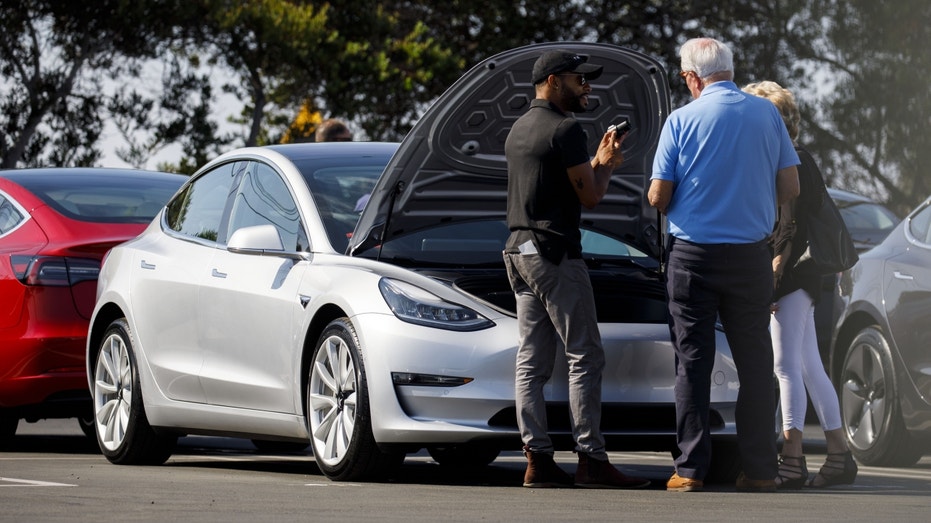Electric vehicle maker Tesla on Tuesday announced the recall of 1.85 million vehicles in the U.S. because of an issue with software failing to detect an unlatched hood, potentially causing it to fully open and obstruct a driver’s view on the road.
The National Highway Traffic Safety Administration (NHTSA) said that an unlatched hood opening fully could cause the driver to crash because of their view being impeded.
Tesla began rolling out an over-the-air software update to fix the issue in mid-June, NHTSA said. The updated software properly detects an open hood and alerts drivers accordingly.
The Elon Musk-led automaker began investigating customer complaints of unintended hood opening events in Model 3 and Model Y vehicles in China in late March.
CALIFORNIA CITY ROLLS OUT ALL-ELECTRIC FLEET, FIRST IN US
From mid-April to June 7, Tesla analyzed samples in the field to understand the issue and latch commonalities across its various vehicle lines and regions. It found that hood latch problems were more common in China when compared to incidents in the European and North American markets.
| Ticker | Security | Last | Change | Change % |
|---|---|---|---|---|
| TSLA | TESLA INC. | 222.62 | -9.48 | -4.08% |
The EV maker began engineering studies on June 7 in Europe and North America to inspect hood latch assemblies for deformations in switches and on July 17 decided to voluntarily recall affected vehicles out of an abundance of caution.
ANALYST HAD TO INTERVENE TO KEEP TESLA’S FULL SELF-DRIVING MODE FROM CRASHING

As of July 20, Tesla has identified three warranty claims or field reports for its vehicles in the U.S. that are or may be related to this issue, and the company isn’t aware of any crashes, injuries or deaths caused by it.
Vehicles covered by the recall include the 2021-2024 Model 3, Model S, Model X, and 2020-2024 Model Y vehicles. All of the recalled vehicles had a hood latch made in China by Magna Closures Co.
The recall is Tesla’s biggest since December when it recalled 2.03 million vehicles in the U.S. — nearly all of its cars on U.S. roads at the time — to install new safeguards in its Autopilot system.
Reuters contributed to this report.
Read the full article here











